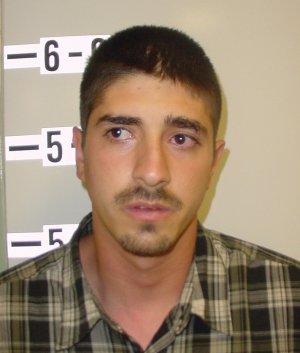LAKE COUNTY – With the union representing them saying it's launching an effort to recall four county supervisors, In-Home Supportive Services providers and clients around the county may soon find themselves at the heart of a very political season.
California United Homecare Workers (CUHW) represents the more than 1,300 local IHSS providers in Lake County. Earlier this year, IHSS workers voted to make CUHW their primary union, according to Tyrone Freeman, CUHW's president.
In an interview with Lake County News, Freeman said the union is launching a recall of Supervisors Anthony Farrington, Rob Brown, Ed Robey and Jeff Smith, claiming the four incumbent supervisors have failed to respond to the needs of IHSS workers and clients.
On June 5, the board forwarded a proposal to the state that would give IHSS workers $1 an hour raise if they underwent drug testing and were trained in cardiopulmonary resuscitation and first aid. Meeting those requirements would make them eligible for inclusion in the IHSS Public Authority registry and, therefore, the raise.
Freeman and the union were angered that the board took up the issues without bringing them first to the negotiation table. In a June 29 letter, County Counsel Anita Grant told Freeman that the county fully intended to meet and confer with the union if the state was willing to help support the proposal financially.
Nevertheless, the recall was announced and is going forward, said Freeman. Of the 1,379 IHSS workers recently counted, 584 voted on the recall, with 540 voting to support it and 44 voting against.
So, how do IHSS workers feel about the recall? Lake County News spoke to one on each side of the issue to offer two of many opinions.
A pro-recall viewpoint
Laurel Elliott of Nice has spent the last three and a half years providing home-based care. She first worked in Nevada, then came to Lake County and began providing IHSS care to her mother, beginning in December 2004. Elliott works full-time as her mother's caregiver.
IHSS care has made it possible for her mother to live at home and have a greater quality of life than if she was in a care facility, said Elliott.
Care facilities are also extremely expensive. About 10 years ago, Elliott said she worked as a supervisor of housekeeping services in a nursing home, where monthly care costs for patients ran between $3,600 to $4,200 a month.
“I really don't think the prices have gone down any,” she said.
It's because of such issues that Elliott feels strongly that IHSS workers need better pay, greater respect and more support. She said it's her opinion that the county hasn't offered any of those resource to IHSS workers.
As she's watched negotiations between the county and the union, Elliott said, “I got the impression that the county doesn't want to negotiate, they like things the way they are.”
Elliott said she supports the recall effort, and so when Freeman sent out a letter to union members early in June asking for them to vote on support for the recall, she said she sent back the voting card with the ballot marked “yes.”
She added that she thinks the entire board should go, even District 3 Supervisor Denise Rushing – who Freeman said will not be a target – because she voted for the June 5 proposal. Elliott said IHSS workers helped get Rushing into office, but by accepting the proposal she didn't return that support.
Elliott said she thinks the recall as a “50-50” chance of succeeding. She said she's not sure yet if she'll actually work on the union's recall effort at the local effort, which Freeman said will include a community group to screen potential replacement candidates.
She said she feels the union has supported workers “by not letting us be railroaded into something that won't benefit us,” which for her applies to the proposal the board considered June 5. “I don't agree with it,” she said.
On the drug testing issue, Elliott said if IHSS care recipients request it, “then I think it's valid.”
However, for IHSS workers like herself who are working for family members, drug testing might not make sense.
In her mother's case, “It's not like she's getting someone she doesn't know.”
Said Elliott, “One of the reasons that I support the recall election is because I don't like being labeled a criminal or an addict. I'm neither one.”
That, she said, is how the drug testing proposal makes IHSS workers feel. “That to me shows a distinct lack of respect for the IHSS workers.
When she worked as a home care provider in Nevada, Elliott said she was required to undergo a drug test and a background check because the parents of the man who was her care client required those steps. Her client's parents paid for the test, Elliott said. She said she understood that request, since she was a stranger to her client's family.
Elliott said she feels it would be more fair if all IHSS workers were required to undergo background checks and drug testing as a condition of employment when they are first hired. Still, she questioned the necessity of it when working for a family member.
“She knows my history, she knows my background,” Elliott said of her mother and added that she does not use drugs.
Elliott said IHSS workers are needed now and likely will be even more needed in the future.
“The people who are against us now, in 20 or 30 years, they may need us,” she said.
If IHSS workers aren't given fair treatment, said Elliott, home care may not be available in the years ahead.
Counterpoint: Against the recall
Lynne Quartarolo of Kelseyville is on the other side of the recall effort. She said she abstained from the vote – not even returning her ballot – because she's unhappy with the union and its attempt to unseat area supervisors.
“If I sent the card in, I was voting for it,” she said.
And that meant allowing the union to take money from her paycheck to support the recall, and Quartarolo said she doesn't have any budget room when it comes to her wages.
The 62-year-old caregiver works more than full-time – 200 hours a month, seven days a week. She has no benefits such as sick leave – “if you don't work, you don't get paid” – and no health benefits, because she's too young for Medicare.
For the last three years she worked as an IHSS care provider in Lake County. She's also been a home care worker in New Hampshire and even England.
She said she doesn't consider herself a union member – “because I refuse” – and believes the union's approach to drug testing requirements “is totally wrong.”
Quartarolo said the union wants everybody to get the raise offered by the county even if they don't go through background checks and drug testing.
“I'm more than wiling to go for a drug test,” said Quartarolo, and said that those who don't shouldn't get the raise.
She also questioned why IHSS workers locally aren't annually testing for tuberculosis, which has been required in other places she's worked.
In negotiations, Quartarolo said the union has come away asking for less for workers, not more. “We've got to have some benefits.”
In June 2006, said Quartarolo, the “perfect solution” was on the table between the county and the union, which included benefits and a provision keeping IHSS workers' wages $2 an hour above minimum wage. That proposal also included stipulations for background checks, training and drug testing.
Quartarolo said she was watching the meeting on television – her work keeps her from attending board meetings – and saw the union representative turn the proposal down because it wasn't offered to all workers, notably those who wouldn't submit to the necessary testing.
“I wanted to come through the TV set,” she said.
She added, “This is why I'm not a member of the union.”
Turning down that raise proposal, said Quartarolo, to her mind demonstrated that the union was not “speaking for all of us,” but only for those can't – or won't – undergo testing to be entered into the IHSS registry.
Next, a look at the recall process and when it might take place.
E-mail Elizabeth Larson at This email address is being protected from spambots. You need JavaScript enabled to view it..
{mos_sb_discuss:2}














